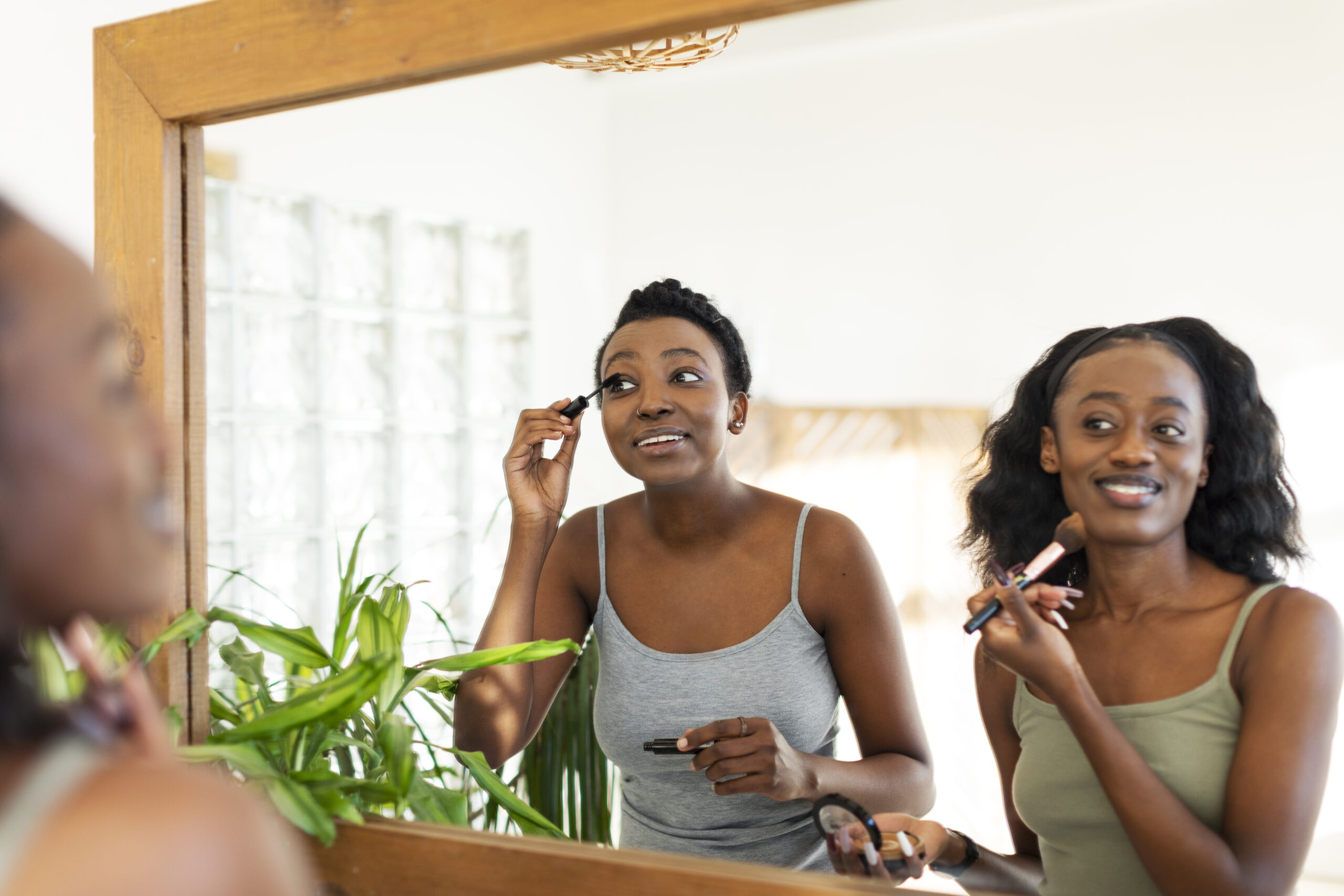Brittany Sharp’s creative spirit fueled her love for makeup. However, she became overwhelmed by the various tools and techniques, making it challenging to apply the skills to herself.
“My relationship with makeup was non-existent,” Sharp told 21Ninety. “I had always been intimidated by makeup and doing it on my own.”
Sharp, an event planner who runs her event planning company The Sharp Standard, naturally has an eye for design. The Atlanta-based business owner is the mastermind behind the many extravagantly decorative weddings throughout the city. Her stellar clientele features couples and parents, including the wedding of restaurant entrepreneurs Pinky Cole and Derrick Hayes. Sharp delivered the fairy tale wedding the pair asked for and garnered national attention with a feature in PEOPLE Magazine and across social media platforms.
Sharp succeeds in seeing a vision and executing it for her clients. However, difficulty strikes when it comes to executing a makeup design for herself.
“I can design the hell out of a wedding, but I just can not paint my face,” Sharp told 21Ninety.
As a solution, Sharp relied on getting her makeup done frequently for her profession. She was a former news reporter before pivoting into event planning. Both professions valuing physical appearance influenced Sharp to pay to get her makeup done at least twice a week. She revealed that she would spend roughly $1,200 monthly for her makeup herself. It wasn’t until recently that she decided to take matters into her own hands.
Sharp’s makeup artist encouraged her to learn more about the artistry in September 2023. As a beginner, Sharpe learned how to do her makeup in three phases: shop for essential products, learn the fundamentals and practice. By November, Sharpe said she felt comfortable doing her makeup by herself.
“[Since] I am in an industry big on physical appearance, people take you more seriously when your self-presentation is good,” Sharpe said told 21Ninety. “Specifically in my industry, people are like, ‘Alright, if she presents herself well, then I know she will present and design my wedding well.’ I look at it as an investment.”
Sharp’s experience sheds light on a broader debate about the investment in makeup lessons versus paying for the service. Del Martin, a makeup artist based in Los Angeles, wants Black women to be knowledgeable about the practice regardless of which route they decide to invest in.
“Not only are Black women not centered on the creation of makeup products, but we are also not centered in the education of applying the products either because most of them are not made for us,” she told 21Ninety.
Martin hosts masterclasses through her company, The Lab. Her business creates an educational platform to help Black women learn about makeup and how to apply it themselves. With her company, she conducts live shopping experiences and makeup tutorials. It helps her achieve her ultimate goal from her college years, which is addressing the gap between Black women and makeup.
She started on YouTube and transitioned into doing in-person events after the pandemic. The in-person events provide a safe space for people to learn.
“Sometimes, you don’t always feel comfortable saying, ‘I don’t know how to put on lashes, contour what this specific product is,'” Martin said. “The biggest part is creating a safe space for all different types of learners in the room…because sometimes it can feel daunting.”
She mentioned how the determining factor between the two depends on the person’s intention.
“When you’re investing in a masterclass in person or online, you’re setting an intention of wanting to learn,” Martin said. “That is the biggest difference between receiving a service and intentionally investing in an educating service. You’re no longer receiving an experience. You’re integrating yourself into the experience. In return, you get a longevity of knowledge.”
Black women have an intricate relationship with makeup and beauty that has evolved. While the beauty industry now professes itself as diverse and inclusive, including Black women is a work in progress. Beauty gurus, like Jackie Aina, Alissa Ashley and Raye Boyce, addressed this gap in the industry. They provide beauty content geared toward Black women. From posting countless makeup tutorials to recommending products, these content creators have cultivated a safe space. Makeup brands, such as Juvia’s Place and Black Opal, also carved a lane where Black women see a reflection of themselves.
